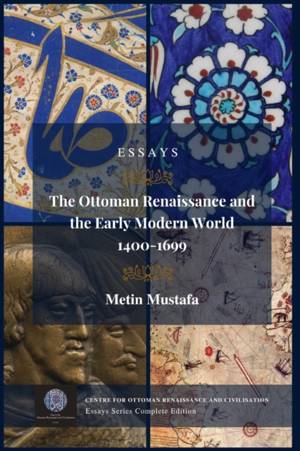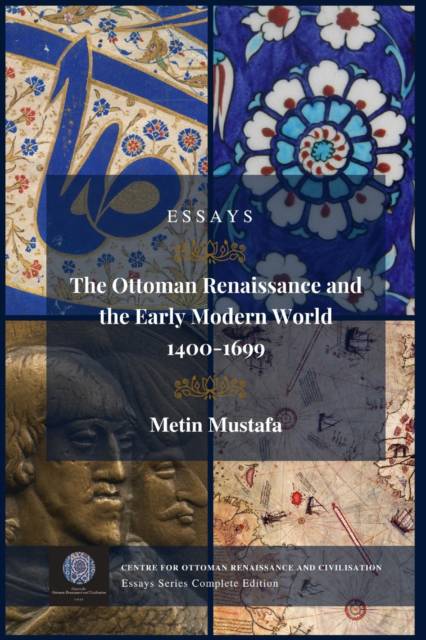
- Afhalen na 1 uur in een winkel met voorraad
- Gratis thuislevering in België vanaf € 30
- Ruim aanbod met 7 miljoen producten
- Afhalen na 1 uur in een winkel met voorraad
- Gratis thuislevering in België vanaf € 30
- Ruim aanbod met 7 miljoen producten
Zoeken
The Ottoman Renaissance and the Early Modern World, 1400-1699
Essays Series Complete Edition
Metin Mustafa
Paperback | Engels
€ 121,45
+ 242 punten
Omschrijving
The essays focus on the global nature of the Renaissance. The research demonstrates the shared heritage of the early modern Mediterranean civilisations, especially between Italy and the Ottoman Empire. This book complements my doctoral work, The Ottoman Renaissance: A Reconsideration of Early Modern Ottoman Art 1413-1575 and further the many renaissances argument put forward. The collection of essays addresses the Renaissance narrative from the perspective of the Ottomans and integrates the achievements of the Early Modern World through culturally inclusive framework. To insist on an exclusively Florentine, Italian, or European rinascita or cultural rebirth would fail to appreciate the cultural interconnectedness of the early modern period. In contrast, by recognising Ottoman arts as part of a larger Renaissance narrative the essays celebrate the globalisation that took place and presents a more objective version of the historical and cultural contexts of the sixteenth-century Mediterranean world. The anthology of essays hopes to inspire future scholarship to recognise the significance of seemingly peripheral cultures in established narratives. By reorienting the purview, a greater understanding of the value of less dominant centres can be achieved, ultimately broadening our understanding of human history.
Specificaties
Betrokkenen
- Auteur(s):
- Uitgeverij:
Inhoud
- Aantal bladzijden:
- 526
- Taal:
- Engels
Eigenschappen
- Productcode (EAN):
- 9780646858265
- Verschijningsdatum:
- 21/03/2022
- Uitvoering:
- Paperback
- Formaat:
- Trade paperback (VS)
- Afmetingen:
- 152 mm x 229 mm
- Gewicht:
- 693 g

Alleen bij Standaard Boekhandel
+ 242 punten op je klantenkaart van Standaard Boekhandel
Beoordelingen
We publiceren alleen reviews die voldoen aan de voorwaarden voor reviews. Bekijk onze voorwaarden voor reviews.








